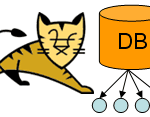
ROWNUM is a magic column in Oracle Database that gets many people into trouble. When you learn what it is and how it works, however, it can be very useful. I use it for two main things:
- To perform top- N processing. This is similar to using the LIMIT clause, available in some other databases.
- To paginate through a query, typically in a stateless environment such as the Web. We can use this.
How ROWNUM Works?
ROWNUM is a pseudocolumn (not a real column) that is available in a query. ROWNUM will be assigned the numbers 1, 2, 3, 4, … N , where N is the number of rows in the set ROWNUM is used with. A ROWNUM value is not assigned permanently to a row (this is a common misconception). A row in a table does not have a number; you cannot ask for row 5 from a table—there is no such thing. Also confusing to many people is when a ROWNUM value is actually assigned. A ROWNUM value is assigned to a row after it passes the predicate phase of the query but before the query does any sorting or aggregation. Also, a ROWNUM value is incremented only after it is assigned, which is why the following query will never return a row:
SELECT *
FROM t
WHERE ROWNUM > 1;Code language: SQL (Structured Query Language) (sql)Because ROWNUM > 1 is not true for the first row, ROWNUM does not advance to 2. Hence, no ROWNUM value ever gets to be greater than 1. Consider a query with this structure:
SELECT ..., ROWNUM
FROM T
WHERE <WHERE CLAUSE>
GROUP BY <COLUMNS>
HAVING <HAVING CLAUSE>
ORDER BY <COLUMNS>;Code language: SQL (Structured Query Language) (sql)Think of it as being processed in this order:
- The FROM/WHERE clause goes first.
- ROWNUM is assigned and incremented to each output row from the FROM/WHERE clause.
- SELECT is applied.
- GROUP BY is applied.
- HAVING is applied.
- ORDER BY is applied.
That is why a query in the following form is almost certainly an error:
SELECT *
FROM emp
WHERE ROWNUM <= 5
ORDER BY sal DESC;Code language: SQL (Structured Query Language) (sql)The intention was most likely to get the five highest-paid people—a top- N query. What the query will return is five random records (the first five the query happens to hit), sorted by salary. The procedural pseudocode for this query is as follows:
ROWNUM = 1
FOR x in
(SELECT * FROM emp)
LOOP
exit when NOT(ROWNUM <= 5)
OUTPUT record to temp
ROWNUM = ROWNUM+1
end loop
SORT TEMPCode language: SQL (Structured Query Language) (sql)It gets the first five records and then sorts them. A query with WHERE ROWNUM = 5 or WHERE ROWNUM > 5 doesn’t make sense. This is because a ROWNUM value is assigned to a row during the predicate evaluation and gets incremented only after a row passes the WHERE clause. Here is the correct version of this query:
SELECT *
FROM (SELECT *
FROM emp
ORDER BY sal DESC)
WHERE ROWNUM <= 5;Code language: SQL (Structured Query Language) (sql)This version will sort EMP by salary descending and then return the first five records it encounters (the top-five records). As you’ll see in the top- N discussion coming up shortly, Oracle Database doesn’t really sort the entire result set—it is smarter than that—but conceptually that is what takes place. For pagination, if you want the 5 -10 records of the employee order by hiredate asc then go for this.
SELECT outer.*
FROM (SELECT ROWNUM rn, inner.*
FROM ( SELECT e.*
FROM employee e
ORDER BY hiredate) inner) outer
WHERE outer.rn >= 5 AND outer.rn <= 10Code language: SQL (Structured Query Language) (sql)


Very good article on the rownum. Seriously, it gives a good insight of the cocept of the rownum.
And the last program is a good creation of the program and the use of the aliases. Hats off ..!!
Thanks a lot! The last solution works beautifully.
Thank you once again
Great article, thanks a lot!
Thanks a lot, the article was very helpful for fixing an issue with my query. It helped me a lot at a critical juncture.